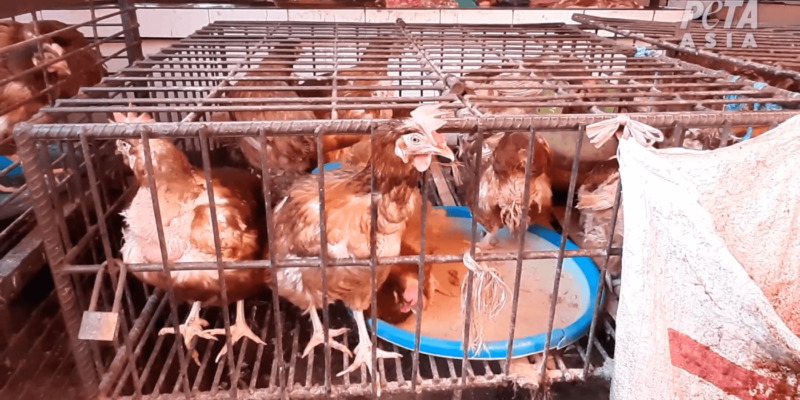Deadly Poisons From the Sea
Think fish is a health food? Think again. Marine animals – such as tuna, octopuses, crabs, prawns and eels – absorb contaminants from the water in which they live, so their flesh is laced with a wide range of toxic chemicals and other dangerous substances. These include PCBs, DDT and dioxin, which cause liver damage, nervous system disorders and foetal damage; bacteria (such as E. coli) from sewage that can cause serious food poisoning; and other dangerous contaminants such as cadmium, mercury, lead, chromium and arsenic, which can cause health problems ranging from kidney damage and impaired mental functioning to cancer. The Times of India reported that the Ganga pollution–monitoring project run by Patna University found that fish taken from the Ganga River contained very high levels of toxic contaminants – in fact, the scientists noted that DDT in the fish’s flesh was 16,000 times more concentrated than it was in the water itself.
The flesh of fish can accumulate toxins up to 9 million times as concentrated as that of the water in which they live. Eating their contaminated flesh can lead to health problems ranging from diarrhoea and abdominal pain to mental impairment, cancer or even death.
Governments across the world have issued countless warnings about the dangers of eating marine animals. Scientists have found that children who eat a lot of sea-animal flesh are slower than other children to talk, walk and develop fine motor skills, and they also have weaker memories and shorter attention spans. Researchers have also shown that adults who eat marine animals have problems with learning and memory. In one study, participants who dined on the flesh of marine animals had elevated levels of PCBs in their blood and had trouble recalling information that they had learned just 30 minutes earlier. Basically, the flesh of marine animals is hazardous to your health. If you want to increase your omega-3 fatty acid intake, try healthy flaxseed oil or walnuts instead.
Fish farms are little more than open sewers, and eating fish, prawns and other animals from these farms exposes you to dangerous faecal bacteria and industrial pollution.
Fish Farms
Now that commercial fishing has nearly emptied our oceans, the fishing industry has turned to raising marine animals such as fish and prawns on aquafarms. Animals on aquafarms are crammed by the thousands into ponds, tanks or mesh cages in coastal waters. Confining so many fish to small areas leads to extremely dense faecal contamination, deadly diseases and outbreaks of parasites. Deadly pathogens from these farms can spread to humans who eat the flesh of these animals or drink water from the areas surrounding the farms. Eating fish contaminated with bacteria and parasites can lead to vomiting, diarrhoea and severe abdominal pain and cramping. Food poisoning from fish and other sea animals can even lead to organ failure and death.
Animals on fish farms also absorb all the pollutants that wild-caught fish do – often in larger quantities. The industrial waste produced by factories seeps into the groundwater and becomes concentrated in fish-farm ponds, and animals in these ponds absorb the dangerous contaminants into their flesh. If the toxic flesh of these animals is sold to markets and ends up on your dinner plate, you will ingest all the industrial pollutants that the animals absorbed before they were killed. These contaminants are stored in your body fat for years and can cause cancer, organ damage, mental impairment and birth defects in your children. The only way to protect yourself from the toxins in marine animals is to keep them off your plate.








